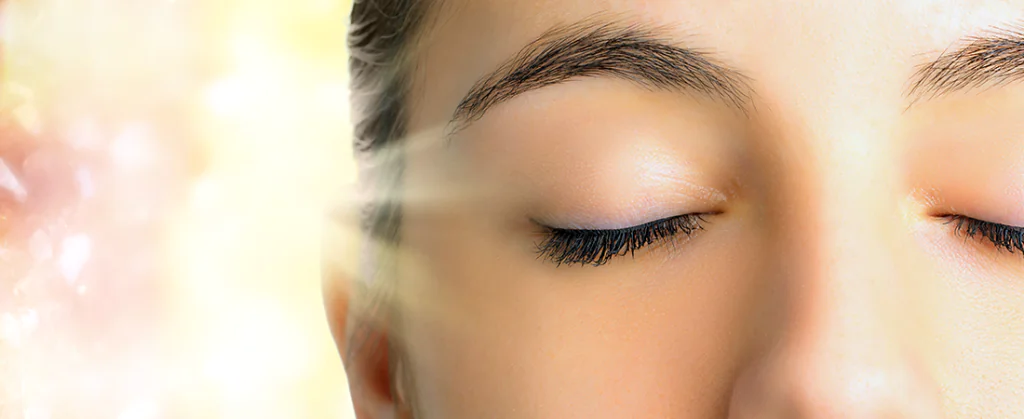Summary: Glaucoma prevention focuses on maintaining healthy eye pressure and supporting optic nerve health through simple daily habits. Regular eye exercises, physical activity, a nutrient-rich diet, proper hydration, stress control, and UV protection help improve blood circulation and reduce strain. While these habits cannot cure or fully prevent glaucoma, they play an important role in protecting eye health and delaying disease progression.
|
Key Takeaways:
|
Glaucoma is an eye condition that damages the optic nerve, often due to increased intraocular pressure. It can lead to vision loss if left untreated. While certain risk factors like genetics cannot be changed, adopting preventive measures can help maintain eye health and reduce the risk of glaucoma.
Protecting your eyes from glaucoma starts with incorporating simple and essential habits into your life that can help with blood circulation and reduce eye strain. Healthy eating, lifestyle changes, and eye exercises can naturally support overall visual function.
Importance of Prevention
Preventing glaucoma is crucial as it is a progressive condition. Once vision loss occurs, it cannot be reversed. By incorporating specific exercises and lifestyle habits, you can actively support eye health and potentially delay the onset of glaucoma.
Eye Exercises to Prevent Glaucoma
Blinking Exercises
How to Perform:
- Sit in a relaxed position and close your eyes completely for two seconds.
- Open your eyes slowly and blink rapidly for five seconds.
- Repeat this cycle for a minute.
Benefits:
- Helps lubricate the eyes and prevents dryness.
- Reduces digital eye strain from prolonged screen use.
- Enhances blood circulation to the eyes, supporting optic nerve health.
Focus Shifting
How to Perform:
- Hold your finger at arm’s length and focus on it.
- Slowly move it toward your nose while maintaining focus.
- Shift focus to an object in the distance.
- Repeat this exercise 10 times.
Benefits:
- Strengthens eye muscles and improves visual flexibility.
- Enhances the ability to focus at varying distances.
- Supports better circulation in the eye tissues.
Palming Technique
How to Perform:
- Rub your hands together until warm.
- Gently place your palms over your closed eyes without pressing.
- Breathe deeply and relax for a few minutes.
Benefits:
- Relieves eye fatigue and tension.
- Encourages relaxation, reducing intraocular pressure.
- Supports mental relaxation, which may help prevent stress-induced eye pressure changes.
Eye Rolling
How to Perform:
- Sit comfortably and close your eyes.
- Roll your eyes in a circular motion, first clockwise for 10 repetitions, then counterclockwise for another 10 repetitions.
- Open your eyes and repeat the process.
Benefits:
- Stimulates eye muscles, enhancing flexibility and movement.
- Improves blood circulation to the optic nerve.
- Helps in reducing eye strain from prolonged near-work activities.
Near and Far Focus
How to Perform:
- Hold a small object like a pen at arm’s length.
- Focus on the object for five seconds.
- Shift focus to a distant object and hold for five seconds.
- Repeat the exercise for a minute.
Benefits:
- Enhances focus adaptability, useful for those spending long hours on screens.
- Supports healthy blood flow and relaxation of the eye muscles.
- Helps in managing eye strain and fatigue.
Pressure Massage Around Eyes
How to Perform:
- Using your fingertips, gently massage the area around your eyes in a circular motion.
- Apply light pressure on the temples, forehead, and under-eye area.
- Continue massaging for a few minutes.
Benefits:
- Promotes better circulation and reduces eye pressure.
- Alleviates headaches and eye fatigue.
- Supports relaxation of eye muscles, reducing strain.
Exercise to Prevent Glaucoma
Regular physical activity can help reduce intraocular pressure and improve blood circulation.
- Walking or jogging (30 minutes daily)
- Swimming
- Cycling
- Yoga (avoid poses where the head is lower than the heart)
Glaucoma Exercise Restrictions
Certain activities can raise intraocular pressure and should be limited:
- Head-down yoga poses like downward-facing dog
- Heavy weightlifting
- High-impact sports that involve sudden pressure changes
- Holding breath during strenuous exercise
- Lifestyle Changes for Glaucoma Prevention
Lifestyle Changes for Glaucoma Prevention
Healthy Diet
A diet rich in antioxidants, vitamins, and minerals can support eye health.
- Foods to include: Leafy greens, fish rich in omega-3s, citrus fruits, nuts, and carrots.
- Foods to avoid: Excessive caffeine, high-sodium foods, and processed sugars.
Proper Hydration
Drinking water throughout the day in small amounts can help maintain eye pressure stability. Avoid consuming large amounts of fluid in a short period.
Avoiding Smoking and Alcohol
Smoking increases oxidative stress, which can damage the optic nerve. Excessive alcohol consumption may also contribute to eye pressure changes.
Regular Eye Check-ups
Routine eye exams help detect early signs of glaucoma, allowing for timely intervention. Individuals over 40 or those with a family history should have annual eye screenings.
Stress Management and Sleep
- Adequate Sleep: Poor sleep can negatively affect intraocular pressure.
- Stress Reduction: Meditation, deep breathing, and relaxation techniques can prevent eye strain and improve overall eye health.
Protecting Your Eyes from External Factors
Avoiding Excessive Screen Time
Excessive screen time can cause digital eye strain, which may contribute to eye fatigue. Follow the 20-20-20 rule: Every 20 minutes, look at something 20 feet away for 20 seconds.
Wearing UV Protection
Ultraviolet rays can contribute to optic nerve damage. Wearing sunglasses with UV protection can reduce long-term risks.
Conclusion
Preventing glaucoma involves a combination of eye exercises, a healthy diet, regular physical activity, and lifestyle changes. By taking proactive steps today, you can support your vision health and reduce the likelihood of developing glaucoma in the future.
These exercises do not directly control, manage, or even prevent Glaucoma; rather, they support eye health and can manage intraocular pressure of the eyes; thus, reducing the possibility of Glaucoma.
Take the first step toward protecting your vision. Schedule a comprehensive eye check-up today. Book Your Eye Exam Now!
FAQs
While glaucoma cannot be fully prevented, adopting a healthy lifestyle with proper eye exercises, diet, and stress management can help reduce the risk.
Eye exercises improve circulation and reduce strain, which can be beneficial for eye health. However, they should be combined with other preventive measures.
Low-impact activities like walking, swimming, and moderate-intensity yoga are safe options. Avoid exercises that involve heavy lifting or head-down positions.
Drinking water in moderate amounts throughout the day can help maintain stable eye pressure, but excessive intake at once should be avoided.
If you are over 40 or have a family history of glaucoma, an annual eye exam is recommended to detect any early signs.





